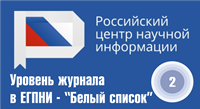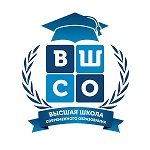Проблема использования нейросетей и инструментов искусственного интеллекта обучающимися вузов: этический аспект
Аннотация
Обоснование. Статья посвящена изучению проблемы применения нейросетей и смежных инструментов искусственного интеллекта обучающимися вузов с позиции этической дихотомии. Обоснование исследования заключается в необходимости осознания потенциальных рисков и возможностей, связанных с применением ИИ в образовательном процессе.
Цель – анализ этических аспектов применения нейросетей обучающимися вузов.
Материалы и методы исследования включают обзор существующих научных работ и международного опыта этической регламентации применения инструментов ИИ в сфере образования, также прецеденты локального табуирования, использованы методы анализа и обобщения данных.
Результаты исследования показывают, что применение нейросетей создает как возможности для улучшения образовательного процесса, так и риски, включая плагиат и неравенство в доступе к технологиям. В заключение, статья подчеркивает необходимость разработки этических норм и регламентации на уровне вузов и государственных структур для повышения эффективности применения новых цифровых помощников в образовательном процессе, а так же интеграции курсов по этическому использованию нейросетей и инструментов искусственного интеллекта в учебные программы, что позволит подготовить студентов к грамотному взаимодействию с новыми технологиями и минимизировать негативные последствия.
EDN: UCXRNH
Скачивания
Литература
Абалян, Ж. А., Пивнева, С. В. (2024). Потенциал и риски использования искусственного интеллекта в высшей школе при обучении иностранному языку в профессиональной сфере. Международный научно-методический журнал «Мир науки, культуры, образования» (МНКО), 3(106), 5-7.
Алешковский, И. А., Гаспаришвили, А. Т., Нарбут, Н. П. и др. (2024). Российские студенты о возможностях и ограничениях использования искусственного интеллекта в обучении. Вестник РУДН. Серия: Социология, 24(2), 335-353. https://doi.org/10.22363/2313-2272-2024-24-2-335-353 EDN: https://elibrary.ru/oauobu
Галагузова, М. А., Перекальский, И. Н. (2024). Трансформация образования с внедрением искусственного интеллекта: постановка проблемы. Ценности и смыслы, 1(89), 84-94.
Гуров, Д. И., Леонов, Д. Е., Кириллов, Г. М. (2024). Влияние искусственного интеллекта на современных студентов: анализ, этические и философские аспекты. Вестник науки, 12(81), Т. 3, 1320-1331.
Даггэн, С. (2020). Искусственный интеллект в образовании: Изменение темпов обучения. Аналитическая записка ИИТО ЮНЕСКО / ред. С. Ю. Князева; пер. с англ.: А. В. Паршакова. Москва: Институт ЮНЕСКО по информационным технологиям в образовании, 45 с.
Ивахненко, Е. Н., Никольский, В. С. (2023). ChatGPT в высшем образовании и науке: угрозы или ценный ресурс? Высшее образование в России, 32(4), 9-22. https://doi.org/10.31992/0869-3617-2023-32-4-9-22 EDN: https://elibrary.ru/tzhihu
Лукичёв, П. М., Чекмарев, О. П. (2023). Применение искусственного интеллекта в системе высшего образования. Вопросы инновационной экономики, 13(1), 485-502. https://doi.org/10.18334/vinec.13.1.117223 EDN: https://elibrary.ru/qbtlxd
Панова, М. С. (2022). Этика искусственного интеллекта в образовании. Москва: МГИМО, 26 с.
Прохоров, А. В. (2024). Потенциал технологий искусственного интеллекта в языковой подготовке будущих медиаспециалистов. Вестник ТГУ, 3, 589-595.
Резаев, А. В., Трегубова, Н. Д. (2023). ChatGPT и пять уроков для высшей школы в период становления “искусственной социальности”. Телескоп, 1, 57-61. https://doi.org/10.24412/1994-3776-2023-1-57-61 EDN: https://elibrary.ru/rxmklc
Филимонова, И. В. (2024). Этическая сторона использования искусственного интеллекта в образовании. Вестник евразийской науки, 16(s1), 1-10.
Шумакова, Н. И., Ллойд, Дж. Дж., Титова, Е. В. (2023). На пути к правовому регулированию генеративного ИИ в творческой индустрии. Journal of Digital Technologies and Law, 4, 880-908. https://doi.org/10.21202/jdtl.2023.38 EDN: https://elibrary.ru/wxwsvu
Bhullar, P. S., Joshi, M., Chugh, R. (2024). ChatGPT in higher education - a synthesis of the literature and a future research agenda. Education and Information Technologies, 29, 21501-21522.
Brühl, V. (2024). Generative Artificial Intelligence - Foundations, Use Cases and Economic Potential. Vol. 59, No. 1, 5-9.
Chaudhry, M. A., Kazim, E. (2022). Artificial Intelligence in Education (AIEd): a high-level academic and industry note 2021. AI Ethics, 2(1), 157-165. https://doi.org/10.1007/s43681-021-00074-z EDN: https://elibrary.ru/sozhgs
Cotton, D. R. E., Cotton, P. A., Shipway, J. R. (2024). Chatting and cheating: Ensuring academic integrity in the era of ChatGPT. Innovations in Education and Teaching International, 61(2), 1-11.
Crompton, H., Burke, D. (2023). Artificial intelligence and higher education: The state of the field. International Journal of Educational Technology in Higher Education, 20, 20.
Du Boulay, B. (2023). Artificial Intelligence in Education and Ethics. In: Handbook of Open, Distance and Digital Education, 93-108.
Habib, S., Vogel, T., Anli, X., Thorne, E. (2024). How does generative artificial intelligence impact student creativity? Journal of Creativity, 34(1), 100072. https://doi.org/10.1016/j.yjoc.2023.100072 EDN: https://elibrary.ru/tctsfm
Luo, J. (2024). A critical review of GenAI policies in higher education assessment: A call to reconsider the “originality” of students’ work. Assessment and Evaluation in Higher Education, 49(5), 651-664.
Nguyen, A., Ngo, H. N., Hong, Y. et al. (2023). Ethical principles for artificial intelligence in education. Educ Inf Technol, 28, 4221-4241.
O’Dea, X. (2024). Generative AI: Is it a paradigm shift for higher education? Studies in Higher Education, 49(1), 1-6.
Scherer, M. U. (2016). Regulating Artificial Intelligence Systems: Risks, Challenges, Competencies, and Strategies. Harvard Journal of Law & Technology, 29(2), 353-400.
Sokolova, A. G., Arkhipov, A. V. (2023). Application of neural networks in education: opportunities and challenges. INNOVATION & INVESTMENT, 2, 127-130. EDN: https://elibrary.ru/syzzjv
The Ethical Framework for AI in Education. The Institute for Ethical AI in Education, 2020, 15 p.
Wang, H., Dang, A., Wu, Z., Mac, S. (2024). Generative AI in higher education: Seeing ChatGPT through universities’ policies, resources, and guidelines. Computers and Education: Artificial Intelligence, 7, 100326.
Adrian, T. (2024). Artificial Intelligence and its Impact on Financial Markets and Financial Stability. IMF. URL: https://www.imf.org/en/News/Articles/2024/09/06/sp090624-artificial-intelligence-and-its-impact-on-financial-markets-and-financial-stability
EU’s ethical guidelines on the use of AI and Data in teaching are now available in Georgian (2024). EIN Presswire. URL: https://www.einpresswire.com/article/721240500/eu-s-ethical-guidelines-on-the-use-of-ai-and-data-in-teaching-are-now-available-in-georgian
AI and education: Kids need AI guidance in school. But who guides the schools? (2024). World Economic Forum. URL: https://www.weforum.org/stories/2024/01/ai-guidance-school-responsible-use-in-education/
Multiple Chinese universities standardize the use of AI for academic writing (2024). Global Times. URL: https://www.globaltimes.cn/page/202405/1312210.shtml
Guidelines for the Use of Generative AI Tools. Tufts University. URL: https://it.tufts.edu/guidelines-use-generative-ai-tools (дата обращения: 05.01.2025)
How Students Are Actually Using Generative AI and What Educators Can Do to Adapt (2024). Harvard Business Publishing Education. URL: https://hbsp.harvard.edu/inspiring-minds/how-students-are-actually-using-generative-ai
Минобрнауки попросили регламентировать использование ИИ в обучении. Что об этом думает ChatGPT? (2023). Афиша Daily. URL: https://daily.afisha.ru/news/72653-minobrnauki-poprosili-reglamentirovat-ispolzovanie-ii-v-obuchenii-chto-ob-etom-dumaet-chatgpt/
НИУ ВШЭ разработала первый в России кодекс этики использования ИИ-систем в образовании (2024). ГК «Кодекс». URL: https://gkkodeks.cntd.ru/news/read/niu-vsh-razrabotala-pervyy-v-rossii-kodeks-tiki-ispolzovaniya-ii-sistem-v-obrazovanii/novosti-cifrovizacii (дата обращения: 05.01.2025)
Как российские и зарубежные вузы внедряют ИИ в обучение студентов (2024). Ведомости. URL: https://www.vedomosti.ru/technology/articles/2024/11/06/1073238-kak-rossiiskie-vnedryayut
В Гонконге изучение ИИ станет частью школьной программы (2023). Skillbox Media. URL: https://skillbox.ru/media/education/v-gonkonge-izuchenie-ii-stanet-chastyu-shkolnoy-programmy/?utm_source=media&utm_medium=link&utm_campaign=all_all_media_links_links_articles_all_all_skillbox
References
Abalyan, Zh. A., Pivneva, S. V. (2024). Potential and risks of using artificial intelligence in higher education when teaching a foreign language in the professional sphere. MNKO, 3(106), 5-7.
Aleшковский, I. A., Gaspariashvili, A. T., Narbut, N. P., et al. (2024). Russian students about the opportunities and limitations of using artificial intelligence in learning. RUDN Journal of Sociology, 24(2), 335-353. https://doi.org/10.22363/2313-2272-2024-24-2-335-353 EDN: https://elibrary.ru/oauobu
Galaguzova, M. A., Perekal’skiy, I. N. (2024). Transformation of education with the introduction of artificial intelligence: problem statement. Values and Meanings, 1(89), 84-94.
Gurov, D. I., Leonov, D. E., Kirillov, G. M. (2024). The impact of artificial intelligence on modern students: analysis, ethical and philosophical aspects. Bulletin of Science, 12(81), Vol. 3, 1320-1331.
Duggan, S. (2020). Artificial Intelligence in Education: Changing the Pace of Learning. Analytical Note by UNESCO IITE; ed. by S. Yu. Knyazeva; trans. from English by A. V. Parshakova. Moscow: UNESCO Institute for Information Technologies in Education, 45 p.
Ivakhnenko, E. N., Nikol’skiy, V. S. (2023). ChatGPT in higher education and science: threats or valuable resource? Higher Education in Russia, 4, 9-22. https://doi.org/10.31992/0869-3617-2023-32-4-9-22 EDN: https://elibrary.ru/tzhihu
Lukichev, P. M., Chekmarev, O. P. (2023). Application of artificial intelligence in the higher education system. Issues of Innovative Economics, 13(1), 485-502. https://doi.org/10.18334/vinec.13.1.117223 EDN: https://elibrary.ru/qbtlxd
Panova, M. S. (2022). Ethics of Artificial Intelligence in Education. Moscow: MGIMO, 26 p.
Prokhorov, A. V. (2024). Potential of artificial intelligence technologies in language training of future media specialists. TSU Bulletin, 3, 589-595.
Rezaev, A. V., Tregubova, N. D. (2023). ChatGPT and five lessons for higher education during the formation of “artificial sociality”. Teleskop, 1, 57-61. https://doi.org/10.24412/1994-3776-2023-1-57-61 EDN: https://elibrary.ru/rxmklc
Filimonova, I. V. (2024). Ethical aspects of using artificial intelligence in education. Bulletin of Eurasian Science, 16(s1), 1-10.
Shumakova, N. I., Lloyd, J. J., Titova, E. V. (2023). On the way to legal regulation of generative AI in the creative industry. Journal of Digital Technologies and Law, 4, 880-908. https://doi.org/10.21202/jdtl.2023.38 EDN: https://elibrary.ru/wxwsvu
Bhullar, P. S., Joshi, M., Chugh, R. (2024). ChatGPT in higher education - a synthesis of the literature and a future research agenda. Education and Information Technologies, 29, 21501-21522.
Brühl, V. (2024). Generative Artificial Intelligence - Foundations, Use Cases and Economic Potential. Vol. 59, No. 1, 5-9.
Chaudhry, M. A., Kazim, E. (2022). Artificial Intelligence in Education (AIEd): a high-level academic and industry note 2021. AI Ethics, 2(1), 157-165. https://doi.org/10.1007/s43681-021-00074-z EDN: https://elibrary.ru/sozhgs
Cotton, D. R. E., Cotton, P. A., Shipway, J. R. (2024). Chatting and cheating: Ensuring academic integrity in the era of ChatGPT. Innovations in Education and Teaching International, 61(2), 1-11.
Crompton, H., Burke, D. (2023). Artificial intelligence and higher education: The state of the field. International Journal of Educational Technology in Higher Education, 20, 20.
Du Boulay, B. (2023). Artificial Intelligence in Education and Ethics. In: Handbook of Open, Distance and Digital Education, 93-108.
Habib, S., Vogel, T., Anli, X., Thorne, E. (2024). How does generative artificial intelligence impact student creativity? Journal of Creativity, 34(1), 100072. https://doi.org/10.1016/j.yjoc.2023.100072 EDN: https://elibrary.ru/tctsfm
Luo, J. (2024). A critical review of GenAI policies in higher education assessment: A call to reconsider the “originality” of students’ work. Assessment and Evaluation in Higher Education, 49(5), 651-664.
Nguyen, A., Ngo, H. N., Hong, Y. et al. (2023). Ethical principles for artificial intelligence in education. Educ Inf Technol, 28, 4221-4241.
O’Dea, X. (2024). Generative AI: Is it a paradigm shift for higher education? Studies in Higher Education, 49(1), 1-6.
Scherer, M. U. (2016). Regulating Artificial Intelligence Systems: Risks, Challenges, Competencies, and Strategies. Harvard Journal of Law & Technology, 29(2), 353-400.
Sokolova, A. G., Arkhipov, A. V. (2023). Application of neural networks in education: opportunities and challenges. INNOVATION & INVESTMENT, 2, 127-130. EDN: https://elibrary.ru/syzzjv
The Ethical Framework for AI in Education. The Institute for Ethical AI in Education, 2020, 15 p.
Wang, H., Dang, A., Wu, Z., Mac, S. (2024). Generative AI in higher education: Seeing ChatGPT through universities’ policies, resources, and guidelines. Computers and Education: Artificial Intelligence, 7, 100326.
Adrian, T. (2024). Artificial Intelligence and its Impact on Financial Markets and Financial Stability. IMF. URL: https://www.imf.org/en/News/Articles/2024/09/06/sp090624-artificial-intelligence-and-its-impact-on-financial-markets-and-financial-stability
EU’s ethical guidelines on the use of AI and Data in teaching are now available in Georgian (2024). EIN Presswire. URL: https://www.einpresswire.com/article/721240500/eu-s-ethical-guidelines-on-the-use-of-ai-and-data-in-teaching-are-now-available-in-georgian
AI and education: Kids need AI guidance in school. But who guides the schools? (2024). World Economic Forum. URL: https://www.weforum.org/stories/2024/01/ai-guidance-school-responsible-use-in-education/
Multiple Chinese universities standardize the use of AI for academic writing (2024). Global Times. URL: https://www.globaltimes.cn/page/202405/1312210.shtml
Guidelines for the Use of Generative AI Tools. Tufts University. URL: https://it.tufts.edu/guidelines-use-generative-ai-tools
How Students Are Actually Using Generative AI and What Educators Can Do to Adapt (2024). Harvard Business Publishing Education. URL: https://hbsp.harvard.edu/inspiring-minds/how-students-are-actually-using-generative-ai
Afisha Daily. (2023). Minobrnauki was asked to regulate the use of AI in education. What does ChatGPT think about it? Retrieved from https://daily.afisha.ru/news/72653-minobrnauki-poprosili-reglamentirovat-ispolzovanie-ii-v-obuchenii-chto-ob-etom-dumaet-chatgpt/
Codex Group. (2024). HSE University has developed Russia’s first code of ethics for the use of AI systems in education. Retrieved January 5, 2025, from https://gkkodeks.cntd.ru/news/read/niu-vsh-razrabotala-pervyy-v-rossii-kodeks-tiki-ispolzovaniya-ii-sistem-v-obrazovanii/novosti-cifrovizacii
Vedomosti. (2024). How Russian and foreign universities are implementing AI in student education. Retrieved from https://www.vedomosti.ru/technology/articles/2024/11/06/1073238-kak-rossiiskie-vnedryayut
Skillbox Media. (2023). In Hong Kong, AI studies will become part of the school curriculum. Retrieved from https://skillbox.ru/media/education/v-gonkonge-izuchenie-ii-stanet-chastyu-shkolnoy-programmy/?utm_source=media&utm_medium=link&utm_campaign=all_all_media_links_links_articles_all_all_skillbox
Copyright (c) 2025 Olesia V. Ogareva, Pavel V. Pustoshilo, Alexander A. Ivantsov

Это произведение доступно по лицензии Creative Commons «Attribution-NonCommercial-NoDerivatives» («Атрибуция — Некоммерческое использование — Без производных произведений») 4.0 Всемирная.





































